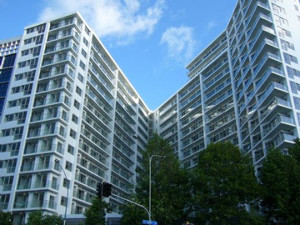Colliers International’s latest research shows a number of proposed Auckland projects being delayed or, in some cases, abandoned. Several major apartment projects are being sold without being completed.
While apartment completions this year will exceed the eight-year average, with 2,545 new apartments being added to the city’s inventory, this is set to slow over the next two years.
Next year, projects under construction will contribute a further 1,890 units to the supply. However, the significant slowdown in project starts will likely lead to apartment project completions reaching multi-year lows in 2025.
Further evidence of the slowdown in development activity has shown up in building consent numbers. Stats NZ data shows annual apartment consents for Auckland over the year to October have dropped by 36% from 12 months prior to 2,095, the lowest 12 monthly total recorded since July 2017.
The decline in apartment consents has outpaced that of the residential sector. Dwelling unit consents have declined by 22% from the peak level of 21,985 in September last year to 17,079 in September this year.
Multi-unit development though, continues to underpin activity accounting for 71.3% of total consents in the year to September, with townhouse consents reaching a record high of 59%.
Popular type
The most popular apartments are one- and two- bedrooms, making a combined 76% of the units tracked by Colliers research.
The two-bedroom is the most popular layout comprising 46% of units under construction and in marketing.
Three-bedroom apartments are less common in the development pipeline but comprise about 13% of apartments being developed or promoted.
Average floor sizes across apartments range considerably based on location, quality, and position.
The average for a one-bedroom apartment is 60-159m2 for a three-bedroom configuration. Two- bedroom apartments are on an average floorplate of 99m2.
Build-to-rent cementing its position
About 600,000 people rent in Auckland, a number that will continue to increase as the total population grows, which is currently occurring at a record rate. A record 119,000 immigrants came across the border in the October year.
While build-to-rent (BTR) housing may not suit every Auckland renter, success in this asset class doesn’t hinge on universal appeal.
Capturing only a small percentage of the (growing) renting population, in areas where key BTR factors can be met, is likely to be enough to fulfill the modest supply projections.
What is evident, and replicates the dynamics seen in more mature BTR markets of North America and the UK, is a recognition of the changing housing needs and preferences amongst the population, particularly younger demographics with many leaning towards renting over traditional homeownership.
Not only does the BTR model address issues related to housing affordability, but provides a more stable, high quality and professionally managed rental option, an area in which Kiwis have often been left wanting.
Colliers’ project tracker highlights almost a doubling of existing BTR stock in Auckland is projected in the next few years, signalling a positive shift in the market.
More than ever, developers and investors, both domestic and international, are exploring opportunities in this sector, considering building projects, investing, joint ventures and management options.
The trajectory of the BTR sector is intricately tied to market dynamics, including government policies and economic conditions. Policies supporting affordable housing and recognising the importance of a well-functioning rental market are key contributors to the sector’s growth.
Although some positive tax and legislative modifications have been made to support the sector’s growth, changes to GST recovery during the development stage and refinement to the sector’s residential-related foreign buyer restrictions and Overseas Investment Office (OIO) approvals are needed to unlock the full potential of the BTR model’s success in New Zealand.
Outlook
The next 12-18 months will see contrasting forces at play, Colliers says.
Persistent headwinds, notably higher interest rates and household budget pressures, will pose challenges.
However, the strengthening supports for the market are expected to drive increased activity. This, coupled with emerging housing shortages, is likely to exert mild upward pressure on values.
A growing imbalance between demand and supply will underscore the need for new development, with Build-to-Rent projects anticipated to assume a more substantial role in addressing the diverse housing needs of New Zealand.




 Search
Search
